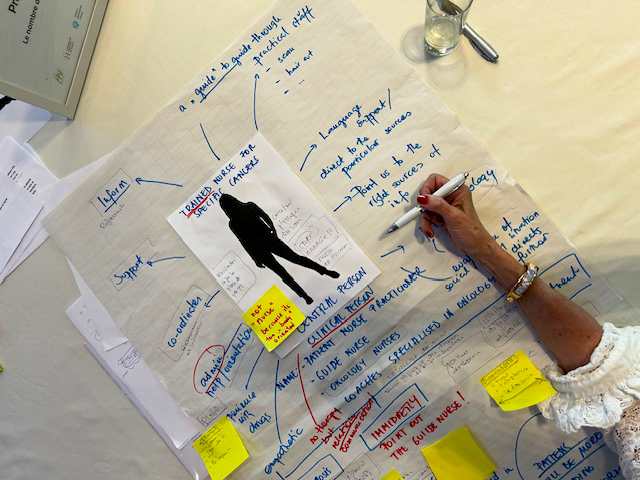On May 14, 2025, the Institut National du Cancer organized a participatory workshop bringing together patients and loved ones who had experienced the announcement of a cancer diagnosis. This afternoon of co-construction was part of the project carried out for Plan National Cancer 2 (PNC2), which began in 2024.
Prototypes based on real-life experiences
Based on 42 interviews conducted in 2024 with patients, relatives, and healthcare professionals, five concrete prototypes were developed to improve the experience of receiving a diagnosis:
Patient follow-up notebook
A personal document enabling patients to centralize key information about their care pathway.
Communication training for healthcare professionals
A program to better support doctors and healthcare providers in delivering diagnoses, which is often an emotionally difficult moment.
Strengthening case managers in oncology
A need expressed by all: to better support patients through the increased presence of dedicated professionals.
Time to decompress after the announcement
A pause to allow patients to catch their breath, ask questions, and better understand the announcement.
Announcement in several stages
A more gradual approach, allowing patients to assimilate the information at their own pace.
A collaborative dynamic between patients and professionals
A few weeks before this workshop, the same prototypes had been discussed during a similar session with healthcare professionals. These tools are designed to address the challenges shared by caregivers and patients.
What happens next?
Work continues with the next stages of the project:
- Creation of tools based on the prototypes discussed.
- Presentation of these tools to healthcare professionals and patients.
- Adoption by professionals and patients in their practices and care pathways.
- 2026: collection of feedback on their use.





